Intel Core i5-6300HQ vs Intel Core i7-6700HQ – which is better for gaming and is it worth the extra bucks for the i7
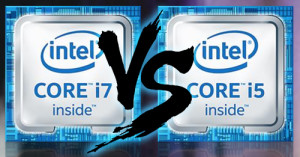 With the new Skylake generation, Intel announced its first high-performance Core i5 processor and it was immediately adopted by many mid-range gaming notebooks. It has all what it takes to run the latest games – four cores, high-speed clocks – 2.3 – 3.2 GHz, and it runs on high voltage (45W TDP).
With the new Skylake generation, Intel announced its first high-performance Core i5 processor and it was immediately adopted by many mid-range gaming notebooks. It has all what it takes to run the latest games – four cores, high-speed clocks – 2.3 – 3.2 GHz, and it runs on high voltage (45W TDP).
But with this new addition to the Core i5 family, a logical question emerges – is it a good enough substitution of the Core i7-6700HQ and how will affect gaming performance in real-life. Let’s take a brief look at what both chips can offer.
You can lookup Dell Inspiron 7559 with Core i5 or Core i7 CPUs at Amazon.com. You can do the same for the other alternatives with Core i5 and Core i7 processors on the market like Acer Aspire V15 Nitro Black Edition, Lenovo Y700, ASUS GL552VW and ASUS G552VW.
Intel Core i5-6300HQ
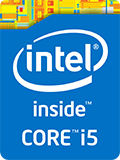
Although it’s a part of the Core i5 line, it’s just ~15% slower than Intel Core i7-4702MQ and it’s ~50% faster than Intel Core i5-4300M. This makes Core i5-6300HQ perfect choice for gaming machines, where one would want to spend its budget on offerings with more powerful GPU, but wouldn’t make big compromise in terms of computing performance.
Furthermore, the chip is manufactured using 14nm FinFET process and integrates Intel HD Graphics 530 GT2 GPU with 24 EU (Executable Units) clocked at 350 – 950 MHz. The memory controller supports up to 64GB of DDR3 or DDR4 RAM at 1600 or 2133 MHz respectively. The CPU is suitable for heavy applications and gaming.
You can browse through our top CPUs ranking: http://laptopmedia.com/top-laptop-cpu-ranking/
Here you will find other useful information and every notebook we’ve tested with this processor: http://laptopmedia.com/processor/intel-core-i5-6300hq/
Intel Core i7-6700HQ
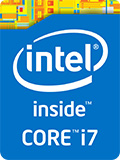 Intel Core i7-6700HQ represents the Skylake H family and it’s considered as a high-performance chip with normal voltage and 45W TDP. This is a step down from its direct predecessor – Core i7-4700HQ, but matches its short-lived predecessor Core i7-5700HQ. The Core i7-6700HQ has four cores ticking at 2.6GHz and can go up to 3.5 GHz for one active core and 3.1 GHz for four active cores. The silicon supports the so-called Hyper-Threading technology that emulates one virtual core for each physical and thus establishing a total of 8 threads.
Intel Core i7-6700HQ represents the Skylake H family and it’s considered as a high-performance chip with normal voltage and 45W TDP. This is a step down from its direct predecessor – Core i7-4700HQ, but matches its short-lived predecessor Core i7-5700HQ. The Core i7-6700HQ has four cores ticking at 2.6GHz and can go up to 3.5 GHz for one active core and 3.1 GHz for four active cores. The silicon supports the so-called Hyper-Threading technology that emulates one virtual core for each physical and thus establishing a total of 8 threads.
Furthermore, the chip is manufactured using 14nm FinFET process and integrates Intel HD Graphics 530 GPU with 24 EU (Executable Units) clocked at 350 – 1050 MHz. The memory controller supports up to 64GB of DDR3 or DDR4 RAM at 1600 or 2133 MHz respectively. The CPU is suitable for heavy applications and gaming.
You can browse through our top CPUs ranking: http://laptopmedia.com/top-laptop-cpu-ranking/
Here you will find other useful information and every notebook we’ve tested with this processor: http://laptopmedia.com/processor/intel-core-i7-6700hq/
So where’s the difference?
Okay, both chips are pretty similar – they are representatives of the same Skylake generation with 14nm FinFET manufacturing process, they both have four cores, cache levels are the same and the TDP is 45W in both cases. The only two things that set the chips apart are the Hyper-Threading feature, which is absent in the Core i5-6300HQ and the clock speeds of the CPU and GPU. The latter, however, might not be of great importance as almost all laptops on the market have discrete GPUs paired with the Core i7-6700HQ and Core i5-6300HQ CPUs. They are mainly used in gaming notebooks or high-performance machines that are intended for CPU-intensive tasks.
But the difference in clock speeds and the lack of Hyper-Threading support on the Core i5 will surely affect the overall performance. We’ve got 2.3 – 3.2 GHz on the Core i5 and 2.6 – 3.5 GHz on the Core i7. However, the Core i5 can reach only 2.8 GHz with four active cores while the Core i7 chip can go as high as 3.1 GHz with four active cores. This is important and should be noted. This should translate into better performance of the Core i7-6700HQ when it comes to CPU-intensive tasks and synthetic benchmark tests, but will it be better for gaming?
This is a question a lot of users might be asking themselves, because the Lenovo Y700 and the new Dell Inspiron 7559, for example, are sold in configurations including both CPUs and, of course, the Core i7 variants are a tad more expensive.
We will try to find an answer to this question by comparing both chips side by side on the synthetic benchmark arena and then we will compare two machines featuring both chips to see if there’s any significant difference in terms of gaming performance.
Benchmarks
Resultaten zijn van onze Photoshop benchmark test (hoe lager de score, hoe beter)
Resultaten zijn van de Fritz schaak benchmark (hoe hoger de score, hoe beter)
Gaming tests
Both notebooks have similar configurations – NVIDIA GeForce GTX 960M and 8GB of RAM. The only difference here is the CPU – the Inspiron 7559 features Core i5-6300HQ while the Aspire V15 Nitro Black Edition boasts Core i7-6700HQ. Also, the settings used for the tests are the same in Full HD (1920×1080) resolution.

| Tomb Raider (Low) | Tomb Raider (Medium) | Tomb Raider (Max) | |
|---|---|---|---|
| Acer Aspire V15 Nitro Black Edition (VN7-592G) | 157 fps | 69 fps | 33 fps |
| Dell Inspiron 7559 | 150 fps | 69 fps | 33 fps |

| F1 2015 (Low) | F1 2015 (Medium) | F1 2015 (Max) | |
|---|---|---|---|
| Acer Aspire V15 Nitro Black Edition (VN7-592G) | 59 fps | 45 fps | 33 fps |
| Dell Inspiron 7559 | 62 fps | 51 fps | 39 fps |

| Thief (Low) | Thief (Medium) | Thief (Max) | |
|---|---|---|---|
| Acer Aspire V15 Nitro Black Edition (VN7-592G) | 55 fps | 47 fps | 30 fps |
| Dell Inspiron 7559 | 49 fps | 43 fps | 28 fps |

| GTA 5 (Low) | GTA 5 (Medium) | GTA 5 (Max) | |
|---|---|---|---|
| Acer Aspire V15 Nitro Black Edition (VN7-592G) | 105 fps | 35 fps | 15 fps |
| Dell Inspiron 7559 | 82 fps | 41 fps | 13 fps |

| – | Middle-Earth: Shadow of Mordor (Low) | Middle-Earth: Shadow of Mordor (Medium) | Middle-Earth: Shadow of Mordor (Max) |
|---|---|---|---|
| Acer Aspire V15 Nitro Black Edition (VN7-592G) | 78 fps | 43 fps | 32 fps |
| Dell Inspiron 7559 | 70 fps | 42 fps | 33 fps |
You can lookup Dell Inspiron 7559 with Core i5 or Core i7 CPUs at Amazon.com. You can do the same for the other alternatives with Core i5 and Core i7 processors on the market like Acer Aspire V15 Nitro Black Edition, Lenovo Y700, ASUS GL552VW and ASUS G552VW.
Bottom line
As you can see from the tests above, the Core i7-6700HQ has an edge over the Core i5-6300HQ when it comes to raw performance. Synthetic benchmark tests indicate around 30-40% better performance and this might be solely on the CPU clocks and the Hyper-Threading feature. But when it comes to gaming performance, both chips perform great. The chances are that you won’t be needing the higher-end Core i7-6700HQ processor for gaming.
So at the end of the day, the Core i5-6300HQ might be the better choice for gaming, but if you are looking for more computational power for CPU-intensive tasks and work, the Core i7-6700HQ will be the way to go.

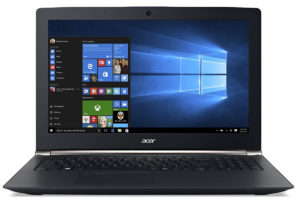



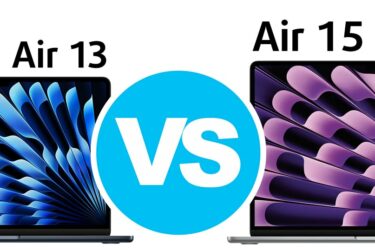
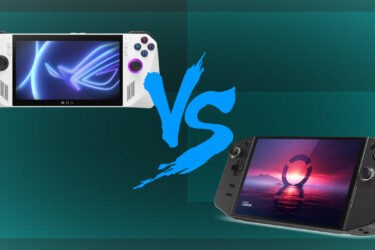


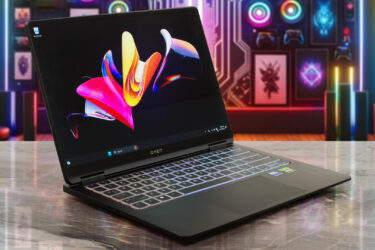
Fix i5 description section. Obviously it hasn’t Hyperthreading technology. Second thing please review i5 clock frequencies.
It was an honest mistake and thanks for noting the issue. Changes have been made.
Great article; makes me feel better about opting for the i5 Inspiron model and saving $200!
http://ark.intel.com/products/88959/Intel-Core-i5-6300HQ-Processor-6M-Cache-up-to-3_20-GHz
http://ark.intel.com/products/88967/Intel-Core-i7-6700HQ-Processor-6M-Cache-up-to-3_50-GHz
The main reason to buy the i7 is the lack of hyper-threading on the i5.
Of course, as long as you have a reason to opt for it. But clearly for gaming, the Core i5 will do just as good.
Well, I use it for professional work as well – and I am pretty sure your site is not only read by gamers 🙂
btw: very nice reviews, well done!
Thank you for you review. I was looking for a new gaming laptop and I didn’t really know the differences between both chips, particularly for gaming. So the i5 6300HQ seems to be a good choice too. The differences doesn’t seem huge. So I think the most important to consider is the GPU for recent gaming laptops.
Ебать как дорого стоят игровые ноутбуки!
I agree with you, it’s too bad to spend a lot of money for a gaming laptop and get “only” a i5 and not a i7. It’s too bad regarding the price you pay.
Why not use both the i5 and i7 models of the Inspiron for the benchmark? Using a different laptop doesn’t seem like it would make sense. At least on the gaming benchmarks since they use CPU, GPU, and RAM.
Specs are identical anyway and the difference that may occur is negligible.
To be fair, this article is literally about the difference between the i5 and i7 models, so it would make more sense to pit them against each other and the Acer whatsit instead of just testing one.
I would like to know which I should prefer ,
I generally use CAD, MATLAB,etc and sone games.i hope u could clear my dilemma.
The first two programs you listed are cpu intensive so get the i7 if u can.But it really depends how much you want to spend for that small decrease in processing time offered by i7. i5 should be sufficient for whatever you’re doing on a “laptop”. For real heavy duty work you should use a desktop.
intel should release a unlock version of 6300hq so people can overclock to 3.6 ghz
why do so when they can make you pay $200s more for the I7?
Nobody noticed, not even in the article, that in some (too many) game cases the i5 is faster than i7? is it because i7 overheats more easily and throttles down ?
Mostly because games aren’t optimized to use hyperthreading fully, and even in games that are optimized for it, the difference is minimal. Sometimes, it actually lowers performance in some areas.
For a design program with color/texture 3D renderings and virtual reality features, do you recommend Core i7-6700HQ? The program is “2020 Design” created specifically for Kitchen/Bath design industry.
I want to use laptop for architecture softwares like lumion, 3ds max, sketchup, etc. Which of these will be a good choice?(I’m kinda confused..)
The i7 lineup for sure because it has Hyper-Threading and rendering software will benefit from it.
I make a living trading online. Oddly, it is hard to get info on optimal CPU GPU configs for trading aps. Maybe, for liability reasons?
Experience has taught me that the Intel i5 cpu usually runs cooler and as fast as the i7 on my charting and market aps. On a laptop that can really matter on performance at peak trading hours, it is a real-world stress test.
Any way you can help keep me informed on new developments is appreciated. Thanks!